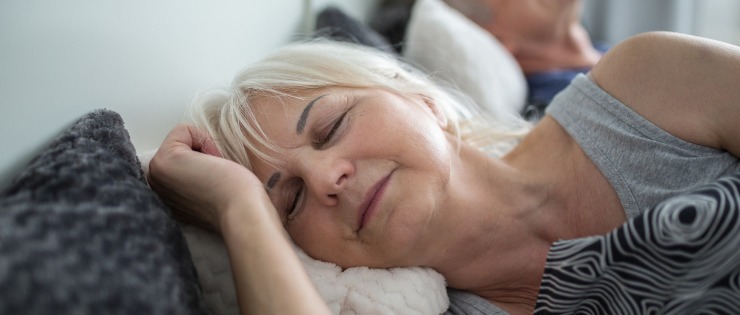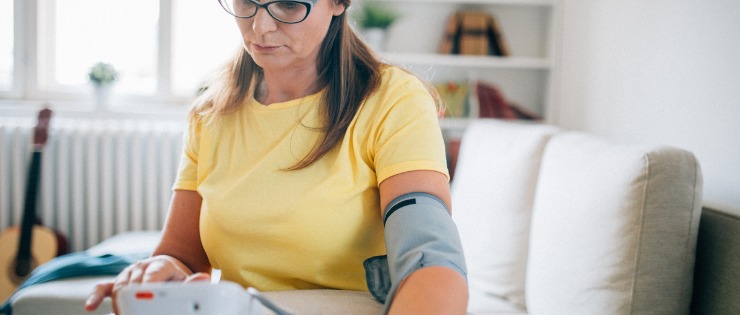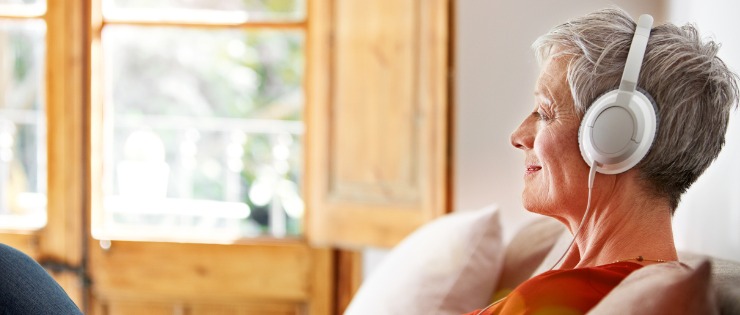
We all know sleep is essential for good physical health, but can a lack of sleep affect our mental health as well? We’re getting less shut eye than any other generation and our mental health is declining. Research shows it’s more than a coincidence that the two are linked.
Incidence of Mental Health Problems
Even before the pandemic in 2019, there were higher levels of anxiety, psychological distress and depression being reported in Australia compared to previous years. One in eight (13%) adults reported high or very high levels of psychological distress in 2017-18 compared to 11.7% in 2014-15. The US is reporting similar increases in its citizens’ mental health.
How Much Sleep Do We Really Need?
Most adults need between seven and nine hours of sleep to function at our optimum level. Some people need more sleep, while others function fine on far less sleep. Age plays a factor in the amount of sleep your body wants. Children need the most sleep, biological changes mean teenagers become night owls and seniors need slightly less sleep than the average adult. Everyone is different, but years of poor sleep can take its toll on anyone.
Sleep Problems
Some people suffer from sleep problems which can affect the quality and quantity of their sleep. Sleep apnea is one of the most common, particularly in people who are overweight. Obstructive sleep apnea is a condition that causes periodic interruptions in breathing while sleeping. Sleep apnea has been linked to hypertension and is a risk factor for heart disease.
Restless leg syndrome is an urge to move your legs or arms at night, making falling and staying asleep difficult. The uncomfortable sensation to move your limbs usually begins when you’ve been lying or sitting for an extended period. Symptoms usually occur at night and are relieved by stretching or moving.
Insomnia is the inability to fall asleep and to sleep well during the night. It’s common for people suffering from anxiety or depression to have insomnia. A study of 10,000 adults found people with insomnia were five times more likely to develop depression.
How Does Insomnia Affect the Brain?
Insomnia can be a contributing factor to mental health conditions starting and also becoming worse. Research shows around 75% of depressed people have symptoms of insomnia. The bidirectional relationship of sleep problems and depressive symptoms can be relieved with improving the quality of sleep.
What Happens If We Don't Get Enough Sleep?
We’ve known how important sleep is for the human body thanks to years of research and studies. Sleep is needed for good physical and mental health.

Physical Health
It’s during sleep that our bodies repair themselves. Blood pressure drops during sleep, so the heart muscle has time to relax and repair and there is a reduced chance of heart disease. Years of poor sleep can put you at greater risk of chronic disease and a reduced life expectancy.
Mental Health
Most people know that a lack of sleep can cause you to feel irritable and bad-tempered the following day. A lack of sleep can also impact our work performance and daily activities. One US study found that when participants had 4.5 hours of sleep for one week, they felt more stressed, angry, sad, and mentally exhausted. As soon as they had more sleep, they reported a dramatic improvement in mood.

When we’re not getting enough sleep, our brains suffer from a range of conditions that impact on our quality of life. The potential effects of poor sleep on the brain include:
The Link Between Mental Health and Sleep
There’s a strong relationship between psychiatric and psychological problems and sleep. People who are anxious, depressed or suffer from other mental health conditions find sleep difficult.
Lack of sleep and poor mental health can become a vicious circle. Some people struggle to fall asleep because they’re suffering from depression or anxiety; a lack of sleep can cause and worsen mental health conditions. If a person can improve their sleep, they may see an improvement in their mental health.
Bipolar disorder has been linked to poor sleep habits. The disorder involves episodes of extreme moods that can be high (mania) and low (depression). Both mood types can cause major disruption to everyday life.
There has also been a link established between schizophrenia and sleep disorders. Schizophrenia is characterised by a difficulty in differentiating what is real and not real. Someone with schizophrenia is more likely to have insomnia and circadian rhythm disorders. Medications for treating schizophrenia can cause poor sleep.
Attention-deficit/hyperactivity disorder (ADHD) causes higher than normal levels of hyperactive and impulsive behaviours. It causes a sufferer to struggle with focusing on a task or staying in the one place for long.
Post Traumatic Stress Disorder (PTSD) is a mental condition caused by witnessing or experiencing a terrifying event. A person may suffer flashbacks, nightmares, severe anxiety and thoughts about the event for months or even years after. The symptoms interfere with sleep and normal daily tasks.
Improve Sleep to Improve Mental Health
There are several strategies to try for improved sleep quality. Often it’s a matter of trial and error to find the right strategy that works for you.
The Power of Exercise
There’s evidence to prove that exercise is successful at reducing mental health symptoms and improving sleep quality. Double the benefits!

The US research study found exercise can provide a distraction, alleviate low self-esteem, improve social interaction and cognitive function. Exercise increases blood circulation to the brain.
The three-month study also revealed the following physical benefits: weight control, increased fitness levels, exercise tolerance, reduced blood pressure levels, perceived energy levels, and increased upper body and handgrip strength levels - all of which can help with self-esteem and sleep.
Thirty minutes of moderate intensity exercise three times a week is all it takes to see health benefits. The 30 minutes of exercise can even be split into three 10 minute blocks.
Manage Your Worries
As hard as it may be, don’t take your worries and anxiety to bed. Try listening to some soothing music or do some yoga poses to clear your mind. Rather than checking work emails before you head to bed, try keeping a journal or writing a gratitude list. If it’s your to-do list that is causing you anxiety, write it out then try to forget about it until it’s time to tackle it in the morning. Taking a bath, reading a book or meditating can also put you in a relaxed mood.
According to Healthline, sleep deprivation can trigger anxiety and anxiety is associated with reduced sleep quality. By improving sleep problems, many psychiatric disorders can improve too.
Sleep Study
Your doctor may recommend a sleep study to help diagnose a sleep disorder. The study involves an overnight stay in a sleep centre where an EEG can monitor your sleep cycles, your REM and non-REM sleep to identify disruptions in the patterns of sleep. The study will also measure oxygen levels in your blood, breathing rates, snoring and body movements. Sleep studies are used to diagnose sleep apnea, sleepwalking, sleep talking, restless leg syndrome, narcolepsy, insomnia, REM sleep disorder behaviour and periodic limb movement disorder.

Tips for Good Sleep Hygiene
Your lifestyle has a big impact on your sleep. The small changes you make during the day can have a big impact on your sleep. Follow some of these tips for improved sleep hygiene:
Reduce blue light exposure in the evening - devices like smartphones and laptops emit large amounts of blue light. Put your phone and laptop away 30 minutes before bed.
Leave technology out of the bedroom. One night you’ll be tempted to check your phone and it could start a bad habit.
Go to bed and get up at the same time each day, even on weekends. Your sensitive body clock likes consistency.
Check the temperature – being too hot or cold at night can cause you to wake up.
Be aware of your diet – some food and drink can cause sleep difficulties.
Avoid vigorous exercise three hours before bed.
Get out of bed if you can’t fall asleep and try again later.
Upgrade your mattress if it’s not comfortable.

Where to Get Help
The importance of sleep at all stages of life can’t be overstated. The odd bad night is normal but when it continues, your mind and body are likely to be impacted. If you think your mental health is suffering from poor sleep, seek help. The longer you suffer from sleep problems, the more likely you will experience other health issues.
If you’re having any problems with falling asleep or staying asleep, speak to you GP. You may be referred to a sleep therapist. There is helpful information available on the Head to Health, the commonwealth government website for mental health. You can source information about a range of mental health disorders and service providers.